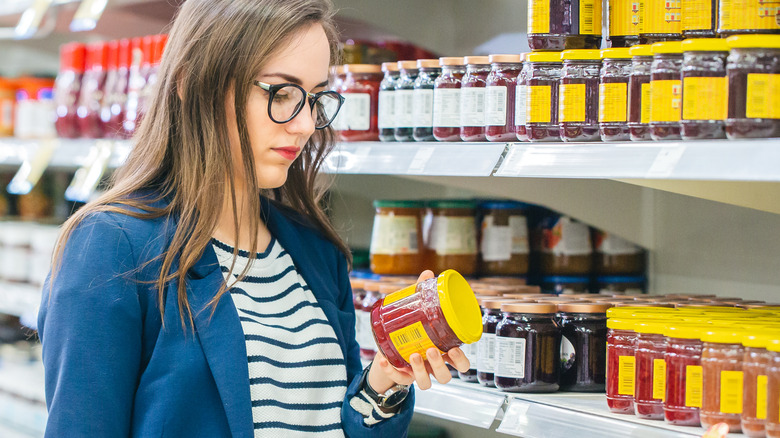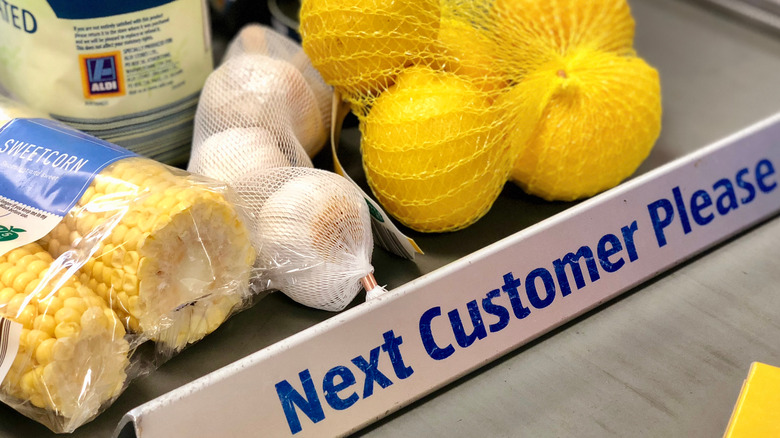We're Tearing Up Over Aldi's Cheaper Prices In The UK
Aldi is renowned for its discount deals and unbelievably brazen own-brand products, so it's of little surprise that the supermarket chain can be considered the cheapest in the country. Aldi's cost-cutting methods are not exclusive to the U.S. either: The company operates over 10,000 stores in more than 10 countries, including the U.K., where Aldi shares the joy of being the country's least expensive supermarket.
What might shock you is that some essential items at Aldi U.K. cost even less than they do in America. Eggs, crucial for the enjoyment of home-baked cakes, are priced $1 more in the U.S. (for fewer of them), while apples can cost more than twice as much. It is a similarly costly story for salad, canned tuna, and macaroni.
So, is it time to rise up against the price disparities and start throwing eggs at Aldi's windows? No. Not only are eggs clearly too expensive to waste, but there are also reasons why Aldi might alter prices between stores.
Aldi changes prices to stay competitive
Aldi's measures to keep prices low are universally recognized in its stores, so the U.S. is not treated unfairly in this respect. These cost savings include making customers pack their own bags, employing fewer staff, providing a restricted range of goods, and excluding many famous brands from featuring on its shelves. Crucially for consumers, Aldi passes at least some of these savings onto its shoppers.
Aldi also accepts that prices will differ between stores, even those within the U.S. Factors such as operating and production expenses, local laws, consumer demand, and nearby competition all affect the pricing structures at individual Aldi stores. These make sense — if an Aldi location is surrounded by other grocery stores it will have to offer cheaper items to draw customers in than if it was the only supermarket in town.
The flipside of differing prices is that the U.S. comes off better for some items. Aldi offers larger portions of many items in the U.S. than it does in the U.K., meaning that although some goods (such as chicken, butter, milk, and ice cream) are technically more expensive, you get more for your money.

